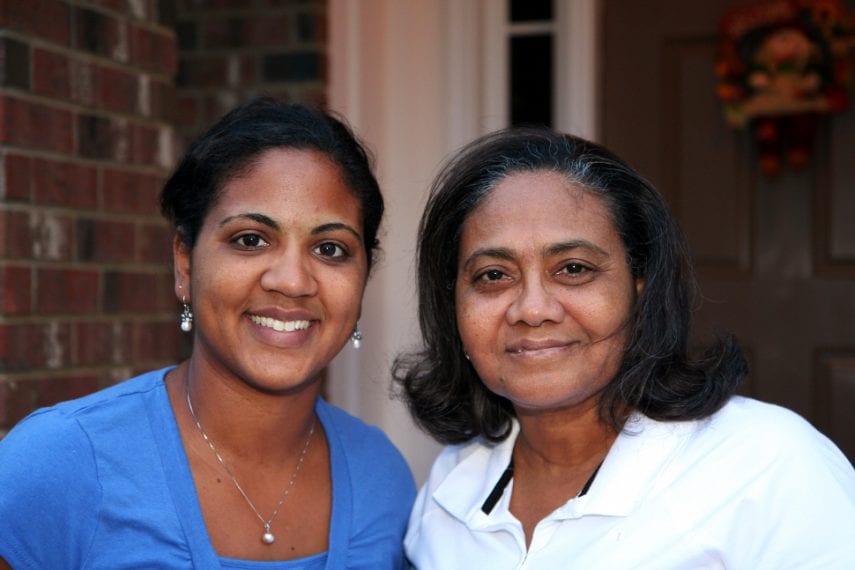Helping a Parent with Panic Attacks Regain Peace Through Therapy

When your parent suffers from panic attacks, living a full, balanced life can be a challenge for you both. Helping them find peace involves understanding the causes of panic attacks, what the symptoms look like, and the importance of therapy. Therapy can also help you understand how panic attacks have a genetic and social component, and how you can take control of your own mental health.
When you are young, your parents are unknowable forces, prone to strange and unpredictable mood shifts, and existing more as a reaction to your actions than as wholly real people. Learning that they are independent of you, with their own unique inner lives, is exhilarating but also scary. It means you can become close, but it also means that you have to examine who they really are and whether what you’ve grown up considering “normal” might necessitate a second, more thoughtful look.
That is always a challenge, but it is compounded when your parent struggles with panic attacks. Panic attacks are destabilizing, scary for everyone involved, with known health risks and unpredictable behavior. If you have a parent with panic attacks, it is important for you to try to get them help. If they can find some peace, it is better for everyone. It is also important for you yourself to discover whether you are prone to panic attacks, either as part of a hereditary mental condition or from the impact of trauma.
Whether your parent suffered panic attacks and their attendant symptoms throughout your childhood or if they are a recent development, the best option is usually comprehensive, long-term therapy. This can get to the root causes and find behavioral options for managing panic attacks and finding better, healthier ways to cope, both individually and as a family.
Understanding Panic Attacks
Panic attacks are severe, acute anxiety attacks that may manifest as part of a panic or other anxiety disorder, but may also co-occur alongside other mental health issues including depression or trauma disorders. They involve a short, intense period of fear which may or may not have an obvious trigger.
From the outside, they may look like mere overreactions—your mom or dad simply “having a fit” about bills that need to be paid or household tasks that never quite seem to get done. But for the person experiencing them, they are terrifying, even debilitating experiences that make them feel helpless and small. Additionally, a person living with panic attacks may learn to start fearing the next attack, which can become a self-fulfilling prophecy where the attacks are triggered by anxiety around having, or trying to prevent, one.
There are two main types of causes of panic attacks: the proximate and the ultimate. The ultimate is the root or roots; the proximate is the trigger.
|
Some examples of ultimate causes include:
|
Some of the proximate causes may include: | |
|
|
There is rarely one cause and one trigger. These can intermingle, and what is fine one day can be triggering the next. A crowd might be ok, but not a crowded wedding where they are feuding with a cousin after a long drive on a hot, slow-moving highway. There are factors, and there are compounding factors.
So how do you recognize if your parent is having a panic attack? Some of the signs and symptoms are:
- Uncontrollable vibrating or twitching in the arms and legs
- Excessive sweating
- ALternations between hot and cold
- Obsession with death or potential disasters
- Dizziness and shallow breathing
- Chest pain up to, and including, a heart attack
When you have a parent with panic attacks, you learn to recognize these signs. But that isn’t enough. It’s important to help them find the help they need—now.
Begin Your Recovery Journey.
877-727-4343The Importance of Therapy for a Parent With Panic Attacks
It’s natural to want your parent to be happy, to find peace—to be able to enjoy life without being constantly afraid that they are going to have an attack, and avoiding anything that might trigger it. That’s why you may want to look into comprehensive residential mental health therapy.
It may not be easy to take that first step and admit that they need help. If their panic attacks have been part of your life for a long time, they seem like the “norm”—it can be hard to see past the regular routine of your life and let yourself realize that it’s your turn to help your parent, rather than the other way around.
Of course, it’s also important not to jump to conclusions, even if the signs above sound all too familiar. Not everyone can or should diagnose mental disorders—which is why it’s important to seek an accurate diagnosis from a professional. From there, the next natural step in many cases will be long-term therapy. This kind of therapy, guided by a team of experienced, caring professionals, is vital to untangling the Gordian Knot that is a panic disorder, with its intermingled causes and complex triggers. It’s not enough to simply say, “Okay, they just need to learn how to relax.” After all, if it were that simple, chances are they wouldn’t have panic attacks in the first place. But with professional help in a safe, comfortable residential setting, your parent can begin to better understand themselves and their attacks, as well as how they can learn to better manage and cope with their disorder.
So, potentially, can you.
Taking Charge of Your Own Mental Health
Research indicates a definite correlation between having a parent with panic attacks and developing a panic disorder yourself. It’s possible that there is a hereditary component, and certainly probable that if you witnessed your parent having one or more attacks when you were a child, you found it traumatizing—another potential trigger which can feed into anxiety and panic disorders.
It’s no one’s fault—not yours, and not your parent’s—that having a parent who suffers from panic attacks can have a negative impact on your own mental health. However, it is within your power to use this knowledge as a tool to help you take charge of your own mental health. If your parent is, in fact, struggling with panic attacks or another mental health disorder, you may want to consider seeking a professional consultation in order to check in with yourself and ascertain whether therapy might be beneficial for yourself as well.
Comprehensive treatment with family programming can help both you and your parent take better care of yourselves and each other, and find a healthy path forward, together and as individuals. With time, patience, and active participation in your own healing process, you’ll be empowered to take back your lives and create a new norm—one that is unconstrained by the trappings of panic and anxiety.
Bridges to Recovery offers comprehensive treatment for mental health disorders as well as process addictions and phase of life issues. Contact us to learn more about our renowned Los Angeles programs and how we can help you or your loved one start on the path to healing.






